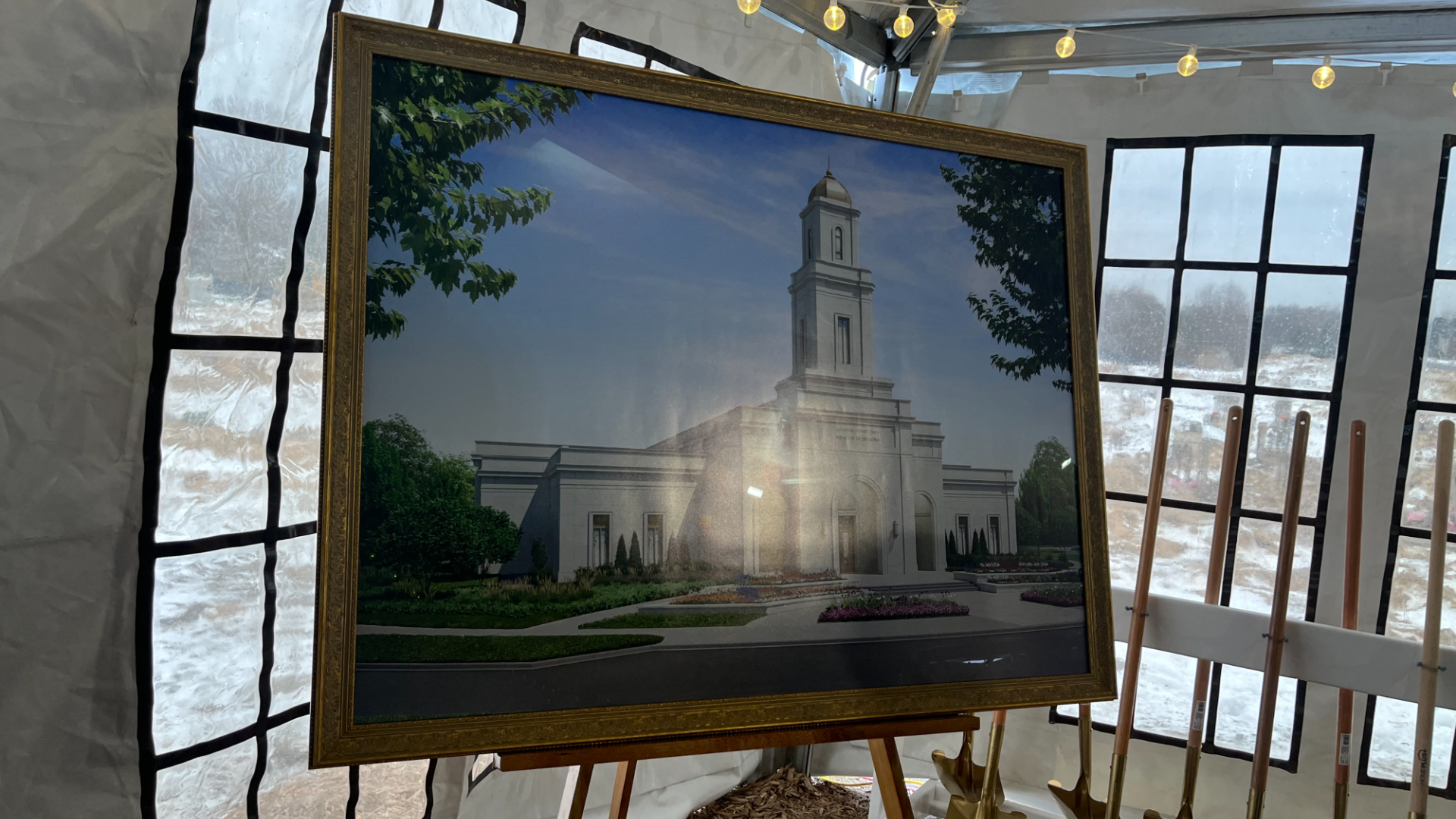GRAND RAPIDS, Mich. (WOOD) — A scaled-back version of the plan to restore the rapids to the Grand River is getting pushback from a Kent County commissioner.
The city of Grand Rapids and Grand Rapids WhiteWater originally planned to fully restore the whitewater rapids to the river. The whitewater rapids, which the city was named for, were removed in the late 1800s and early 1900s. The proposal was shot down by state and federal regulators last year. Project leaders have since pursued a new plan that would still create fast-moving parts of the river.
It’s nothing like what was promised, Kent County Commissioner Tom Antor said.
“The taxpayers in this equation were promised a porterhouse steak and we ended up with a Happy Meal, minus the french fries,” Antor, a Republican, said.
“Everything they said was coming our way is not going to happen now,” he added. “This is not going to be a whitewater project.”
The shelved plan bringing back the whitewater rapids would have cost at least $15 million, according to preconstruction estimates. The new smaller project is estimated to cost at least $18 million.
Grand Rapids WhiteWater Executive Director Matt Chapman emphasized those are only initial estimates and the process remains in flux. He also told New 8 the cost is higher than last time because construction and labor costs have gone up since the pandemic.
“The economy has changed substantially in the last four years,” Chapman said.
In response, Antor said that’s exactly why he wants to go back to the drawing board on the project.
Chapman said about $15 million has already been committed to the project through local and state funding, as well as private dollars. He said the city is also pursuing federal funding that could potentially cover half of construction costs for the lower reach of the river. Cash could also be directed to a separate plan down the line potentially impacting the upper reach.
In late 2018, Kent County approved providing up to $1.4 million for the project to restore the whitewater rapids. The agreement stipulated that Grand Rapids WhiteWater would have to reach certain milestones in order to get all that money.
The county has already given $500,000. In a 7-2 vote this week, the county’s finance committee recommended giving project leaders more time to hit the milestones required to receive the remaining $900,000. The full county board must still approve the recommendation.
Antor, who voted no on the project in 2018, did so again on the latest issue. Because the plan changed, he wants the county to pull back its support and take another look.
“I want to decide on the reality of the new situation,” he said. “What are we approving money for? What’s this thing going to look like?”
Arguing the county should “cut (its) losses,” Antor said philanthropic donations could fund the rest of the project instead of the county.
In response to Antor’s concerns, Chapman told News 8 Thursday that his team has constantly been evaluating the cost of the project with the new plan.
“We’re really trying to go through that line-by-line estimate to ask those same questions ourselves, do our due diligence, make sure we’re getting the best cost for this project,” he said.
Chapman said the current idea would create fast-moving parts of the river from 300 feet upstream of Bridge Street down to Fulton Street. It would remove four dams and put rocks and boulders in the river, allowing for recreation.
“I envision we’ll see recreational tubers, kayakers, people that want to canoe in this stretch of the river, maybe canoe from downtown to Johnson Park or Millennium Park,” he said.
The Grand Rapids Public Museum High School has also expressed interest in using the river as a “classroom” to teach students about the environment and water quality, Chapman said.
He argued activating the riverfront will spur economic development.
“The project, we still believe, will have a tremendous economic impact, especially when you tie it into a lot of the other investments that are underway already in the Grand River corridor, things like the amphitheater, Lyon Square redevelopment,” he said.
Antor said the idea of the project boosting tourism is “absolutely inaccurate,” saying it will do “nothing for the city of Grand Rapids.”
“Without the whitewater, there’s going to be no tourist industry because they based this entire project on whitewater,” he said. “That’s what was going to drive people. Instead of going to Snake River in Colorado, they’re going to come to Grand Rapids. The whole thing was hyperbole and it was never going to happen.”
Because the current project will only affect the lower reach of the river, it will not affect the Sixth Street dam, Chapman said. He said the century-old structure limits recreation opportunities and prevents upstream passage for native, nonjumping fish. Chapman said the original vision of restoring the whitewater rapids could still be realized in the upper reach of the river, but he cautioned that would require a separate planning and permitting process.
Antor said removing the Sixth Street dam would be a big mistake.
“The Grand River in the Sixth Street dam is one of the top five urban fisheries in the entire country right now, so why would we mess with that?” he said. “You talk about a destination — come here in the fall and look at all the fishermen all over the place. They are going to destroy that footprint.”
For the current project, Chapman believes that removing the dams and adding boulders will allow for better fishing on the river.
“We’ve worked closely with the (Michigan Department of Natural Resources),” he said. “More habitat, more boulders, that’s better for fish and wildlife.”
Antor disputed that removing the dams would allow for better passage of fish, calling it “total baloney.”
Meanwhile, the project continues to move forward. Local crews recently wrapped up removing the mussel population from the river, allowing construction to begin. State and federal regulators must still approve the new project permits before that happens. Construction in the water could begin by next July, Chapman said.











